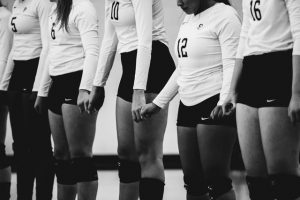Article
What Our Young Athletes Really Need
In youth sports, kids really are not the problem
Kevin Black
One of my all-time favorite movies is The Sandlot.
It’s a story about a group of kids being kids and how they assemble on hot summer days at the local ball field to do what they love most – play baseball. Together, they get into many adventures and learn the nuances of the game.
No coach putting them through mundane drills, no parent micromanaging their activity, no pressure to perform, no fancy uniforms, no trophies, no media coverage and no social media. They had everything they needed: an imagination, some open space, a baseball and a lot of fun.
Drive across town today and you’ll see that “sandlots,” fields and courts are empty. Kids no longer assemble on their own to play the games they love.
What Are We Doing?
There’s a trend sweeping across the youth sports world that focuses on what parents want instead of what children need. Development has been traded for more competitions. Promoting a culture of joy and wonder is replaced by concentrating on the next tournament.
Many young athletes participate in far more organized games than they do practices. It’s not uncommon for a 12-year-old to play in more competitions than the professional athletes of their sport.
For many children, the pressure to perform far out-weighs the importance of having fun. Youth athletes are getting too much, too soon.
Author and CEO of Changing the Game Project, John O’Sullivan calls it the “adultification of youth sports.” Former FSU football coach Bobby Bowden calls it the “peak by Friday mentality.” Borrowing from the biblical writer Paul in a completely different context, we might say the youth sports scene is forcing solid food on young athletes when they can only tolerate milk.
O’Sullivan says, “Many parents are simply trying to sort out the myths and facts of athlete development. They are told what to do by other parents and coaches if they want their children to have success in sports. Yet the path that so many children are following, and in many cases are forced to follow, is not the best path to develop as an athlete, nor as a human being. In fact, their chosen path does just the opposite.”
It’s not that parents and athletes are chasing a crown that doesn’t last, it’s that they’re chasing a crown that doesn’t even exist.
"It’s not that parents and athletes are chasing a crown that doesn’t last, it’s that they’re chasing a crown that doesn’t even exist."
Stop Seeking Elite Status and Just Play
Earlier specialization, unrealistic perceptions of being elite, and delusional goals and expectations are all results of parents searching for something in youth sports that has never existed and never will.
They live in a dream world with visions of their kids receiving college scholarships and continuing their careers at the highest competitive levels, and, even though the collegiate recruiting process is targeting younger athletes each year, college coaches don’t show up at youth events.
Many of today’s college athletes believe they specialized in their sport too soon and say their parents put a lot of pressure on their youth sports experience to produce collegiate and professional success. While prominent college programs and professional organizations are searching for multi-sport athletes, more and more youth programs are pushing specialization.
Kids Are Leaving Youth Sports
According to “The Aspen Institute Project Play Report,” over 70% of children drop out of organized sports before the age of 13. There are 2.6 million fewer children playing the largest sports—baseball, basketball, football, soccer, softball and track & field—and the number one reason children say they no longer participate in sports is because it’s not fun.
Results from the “2015 NCAA GOALS Study of the Student-Athlete Experience” reveal that even those who made it through the youth sports experience and continue participating in sports through college would have chosen a much different path.
What Should We Do?
Experts and professionals suggest a better path. Many doctors, coaches and professional athletes are pushing for a youth sports culture that is athlete-centered and combines skill instruction with long-term planning and understanding of human development to produce athlete growth.
Traveling to the nearest youth “national championships” is not the answer.
Dr. Istvan Balyi and Dr. James Andrews have published books with mountains of evidence for the needed paradigm shift. Professional coaches like Mike Matheny, Rod Olson and others have started a nationwide conversation.
Movements like Changing the Game Project and 3 Dimensional Coaching are not only provoking a nationwide conversation but are also providing the necessary resources for parents, coaches, and youth organizations to do what is best for children instead of what parents want or what is popular.
The experts cannot change the culture on their own. Parents and leaders need courage to become educated and engage others in these conversations. Let’s start sharing/posting the research that we find.
The days of The Sandlot are long gone, but there’s a current version of Benny “The Jet” Rodriguez out there. If he’s not interested in enduring the youth sports experience as a result of our apathy or because it’s no longer fun, we will have let him and an entire generation down.
HELP REDEEM THE CULTURE OF YOUTH SPORTS.
Subscribe to our newsletter
get ministry resources

Athlete, Respond so that Your Teammates Hear
PLAYBOOK DEVOTIONAL Athlete, Respond so that Your Teammates Hear Share on facebook Share on twitter Tom Petersburg Colossians 4:6 (NASB) Let your speech always be

Athlete, Live so that Your Teammates Hear
PLAYBOOK DEVOTIONAL Athlete, Live so that Your Teammates Hear Share on facebook Share on twitter Tom Petersburg Colossians 4:5 (NASB) Conduct yourselves with wisdom toward

Athlete, Pray for Clarity so Your Teammates Hear
PLAYBOOK DEVOTIONAL Athlete, Pray for Clarity so Your Teammates Hear Share on facebook Share on twitter Tom Petersburg Colossians 4:4 (NASB) (Pray for me) that
